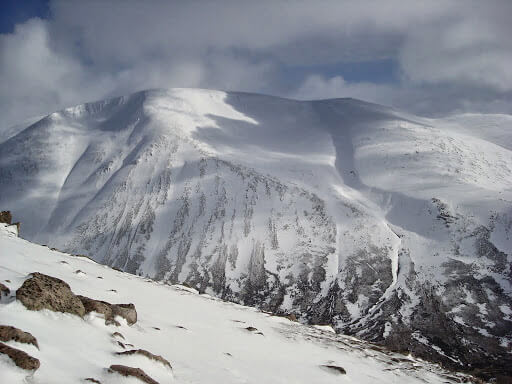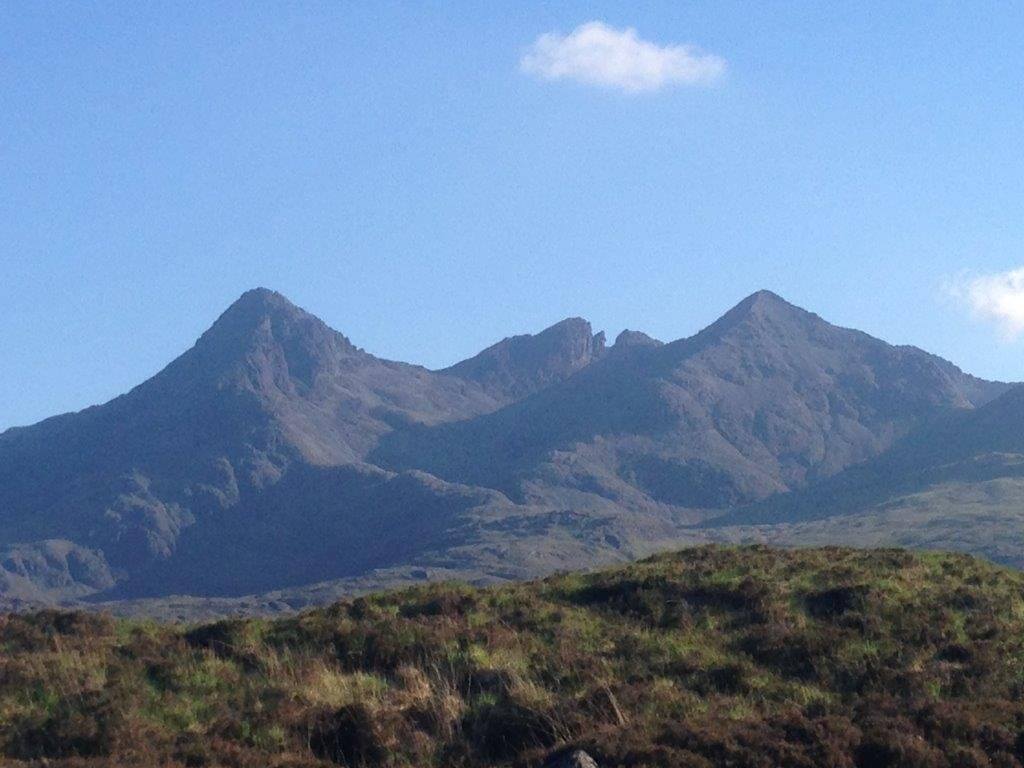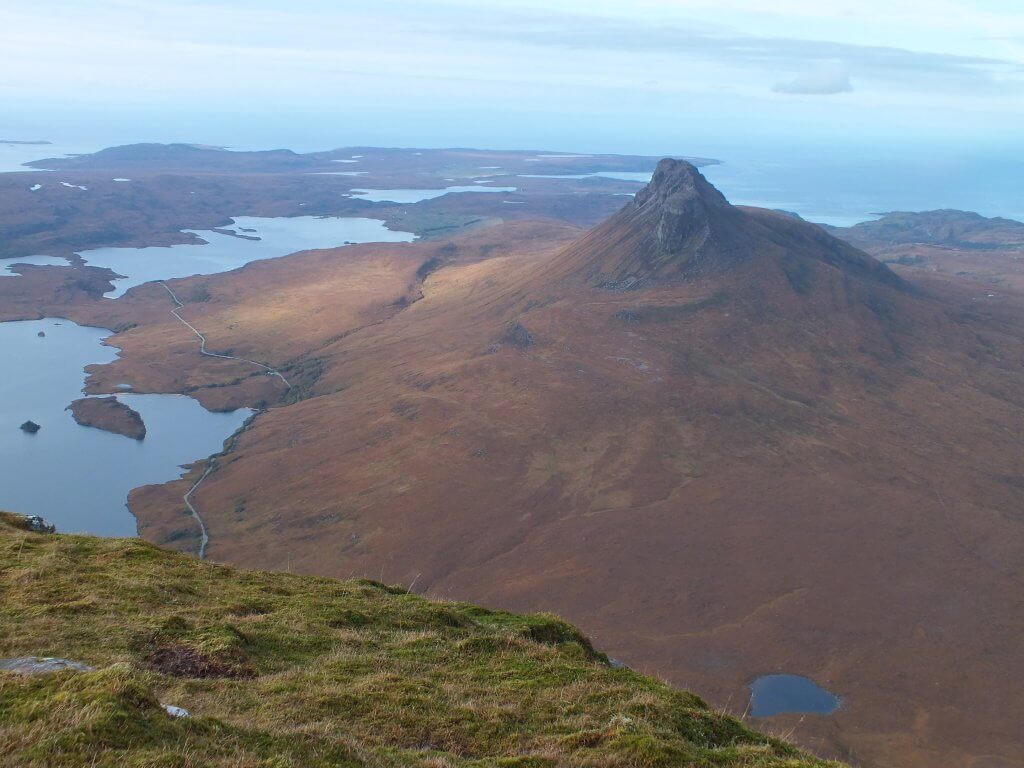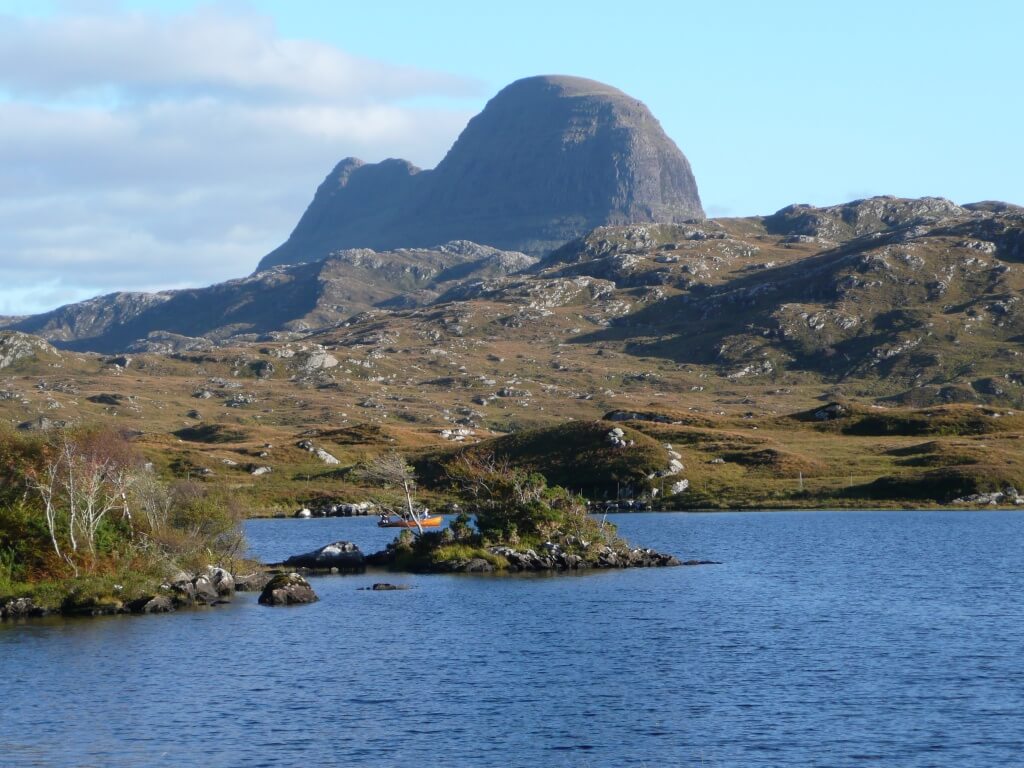
Typical Cairngorm scenery in the snow
We’re off Munro bagging on Skye next week. Does this sound like a foreign language to you? If so we thought we’d add a timely post to the blog just to make sure that our foreign visitors are clear what we’re talking about. What is a Munro? There’s a lot about the language of your home country which you take for granted. Some phrases can even be localised to your own district and even need explaining to your friends and family. “Munros” and “Munro bagging” are hopefully terms which most walkers in the UK are familiar with. If you’re new to hill walking and mountain climbing, here’s a wee guide for you below.
A Munro is “any of the 277 mountains in Scotland that are at least 3,000 feet high (approximately 914 metres).”
Unfortunately this is not all there is to defining a Munro. All sorts of convoluted rules about the distance between summits and the amount of descent between them are used to separate Murnos and “tops”. These are then regularly reviewed by the Mountaineering Council of Scotland when a new edition of the Munros book is due to be published. The number of Munros can go up and down as peaks are re-classified; or you can be a purist and stick to the list as defined by Sir Hugh Munro himself originally.

Popular view of the Cuillin mountains from the Sligachan area.
Munro bagging is an addiction which afflicts many dedicated hikers in the UK. As a visitor it may not be immediately obvious what it means. Unlike “train spotting” or “birdwatching” also known as “twitching”, it’s not all in the name. To bag a Munro is to reach the top of the hill then you’re able to tick it off your list. The ultimate aim is to complete a “round” of the Munros. This means that you will have reached the top of all the Munros. What happens when they reclassify though? Do you then have to complete extra routes? Or do you stick with the list as it was when you started your “round”.
A Munro (see definition above) is one of the higher hills in Scotland. Ben Nevis is a Munro so is Cairngorm, Ben Macdui, Sgor Gaoith & Schiehallion among many others. Some are very well-known, some less so. All now have defined paths to the top, usually the most efficient path, rather than the most attractive route as the goal is just to reach the top, not necessarily to take your time doing it.
The sheer quantity of people now “bagging” Munros has created path erosion on the more popular Munros. So much so that a lot of path maintenance has had to be undertaken in places such as Schiehallion.
The best thing about Munro bagging is that if you are intent on completing the whole list/round, then you will visit parts of Scotland you may never otherwise have gone. There are Munros all over Scotland, not just in the Highlands. Some are more accessible than others. Some require camping to reach them (or very long walks/cycles); others (a minority) require climbing skills, like the Innaccessible Pinnacle on the Cuillin Ridge (Isle of Skye)

The spectacular sandstone peaks of Torridon, over 2500 million years old
It doesn’t necessarily pay to be too focused on an arbitrary list. Not all Munros are interesting peaks. Some are boring, rounded lumps. Some efficient routes to the top ignore the more interesting features on the hill (eg Bynack Mor). There are also some peaks in Scotland which are spectacular – but are far less well-frequented because they are not high enough to be Munros. Check out the pictures below and tell me that you wouldn’t want to climb any of these.

Spectacular Scottish coastline, Assynt (Scotland)

Spectacular views abound in Assynt even though the mountains are not the grandest in height.
Of course, seeing as there is a list for the highest peaks (all those over 3000ft) we couldn’t miss any of the others out, so there are lists for peaks between 2999 – 2500ft (Corbetts) and 2499 – 2000ft, (Grahams) and all those below or alternatively your favourite routes (Marilyns).
Winter Munros
Kintail Munros – details available from Scot Mountain Holidays directly
Private trips: Munro blast weekends – please contact Andy for bookings.
Why go Munro bagging in Autumn?
How to bag all 12 Skye Munros in a week
Why come to Scotland in winter?
Redbull article: Munro bagging – the best Scottish adventure you’ve never heard of
All content © Copyright Scot Mountain Holidays 2025
Responsive web design by Summit Web Solutions